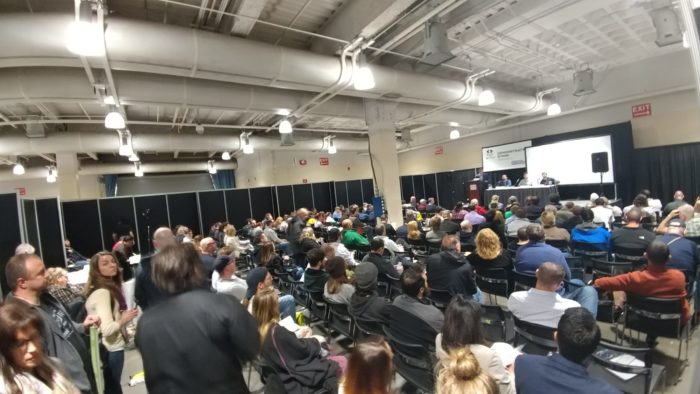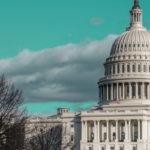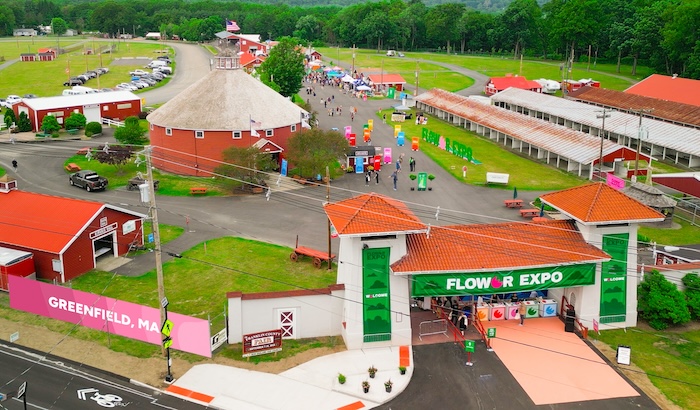
Jostling for position and influence are the disadvantaged candidates, existing industry participants, and municipalities
EDITED BY GEORGE W. HIGHTOWER
Cannabis home delivery has been a hot topic in Massachusetts since May 2020 and will likely remain in the news for some time to come. In this multi-part series we explore what’s going on and how it might impact the various groups who have a dog in this fight. Rumors and speculation abound about how home delivery will work when the rubber hits the road. Unfortunately, some corners of the more established cannabis industry are creating and stoking fear in hopes of scuttling the license class before it gets traction. Today we explore the only candidates who can apply for this lucrative operating licence in the next 3 years, those from disadvantaged backgrounds who are state-certified Equity Empowerment or Social Equity.
A simple controversy has three sides: your side, their side, and the “truth.” The current controversy involves multiple sides, is infinitely complex, and certainly does not have one final solution. Jostling for position and influence are the disadvantaged candidates, existing industry participants, and municipalities. Each of these categories has competing, if not at times conflicting interests.
The adult-use marijuana program nominally holds great promise to rectify some of the wounds of the war on drugs for Economic Empowerment (EE) and Social Equity (SE) program participants, particularly the promise of preferred status when applying for a license. It seemed like a great program, and 122 individuals qualified for EE status over the two-week application window in April 2018. Meanwhile, approximately 400 individuals have taken advantage of the SE training program in the first two cohorts, yet relatively few have received a final license approval from the Commission. Here’s a deeper breakdown …
Back to the future
In November 2012, Massachusetts voters legalized cannabis for medical use. In 2013, a pool of approximately 189 prospective applicants began a nearly 10-month marathon led by the Department of Public Health (DPH) to complete the application process and secure a license to sell medical cannabis.
The process was complex and competitive, and license counts were limited to a minimum of one [and a maximum of five] per county, with only 35 total statewide. Like a college professor posting grades, the DPH issued all of its decisions at once—on Jan. 31, 2014—approving only 20 licenses. Litigation ensued to combat backdoor political deals, the program stalled, and outgoing Gov. Deval Patrick kicked the can down the road to Charlie Baker.
Licenses were eventually issued, and businesses became operational. While figures are not publicly available, based upon the number of operators and reported program revenue, it is unlikely medical operators ever reached significant profitability. Keep in mind that this initial license category was required by state law to be not-for-profit, which made recruiting outside investment challenging.
In November 2013, when all license applications were due to the DPH, a local testing lab operator, ProVerde Labs, sponsored a celebratory event at the House of Blues in Boston. That evening, several attendees were already discussing how to approach a 2016 ballot initiative that would fully legalize marijuana in the state.
By 2016, one of the groups rumored to be most opposed to adult-use regulations was medical marijuana operators. Statistics were clear: in other states, recreational sales tended to eat into medical sales. In Colorado, medical marijuana sales accounted for 55.6% of total legal marijuana sales in 2014. By 2019, that figure had dropped to 19.4%. In terms of real dollars, in 2014 Colorado medical operators racked up sales of $380.3 million, and dropped to $338.5 million by 2019. Meanwhile, adult-use sales grew from $303.2 million in 2014 to $1.41 billion in 2019.
For the Massachusetts market, where operators were likely not yet profitable, allowing adult-use sales was a certain gut-punch to the nascent medical marijuana program.
Mass voters approved adult-use cannabis at the ballot box by a margin that made marijuana more popular than any elected official in a contested race, but officials decided the people’s voice was misguided, and so after years of legislative refusal to act, lawmakers overruled their constituents and recrafted the voter-approved legislation. With lobbying and influence, the medical marijuana operators, many of whom had banded together to form the Commonwealth Dispensary Association (CDA), persuaded legislators to grant them priority review for an adult-use license. In May 2018, the Commission certified 82 Registered Marijuana Dispensaries (RMDs) to enter the agency’s application system early and have their license applications processed first.
To be fair, the RMDs already had cultivation operations producing plant material and could be relied upon to form a foundation for the recreational industry. Simply by being allowed to convert some of their plant stock from medical use to recreational use, these operators would likely be first in line to sell to customers when the industry opened to adult-use (recreational) sales. The first two adult-use retailers are both medical dispensary operators: Cultivate in Leicester, and New England Treatment Access (NETA) in Northampton opened their doors to adult-use customers in November 2018. No new adult-use operator could have gotten licensed, operational, and to harvest as quickly as the existing RMDs.
Interestingly, the RMD priority was not initially confined to the then-operating RMDs. As a result, numerous new operators applied to open co-located facilities (retail shops serving both medical and adult-use customers) and used the RMD priority to jump ahead in the adult use licensing queue, even though they were not in business at the time the law passed. Let’s look at the players, groups, and stakeholders involved.
Certified Economic Empowerment Priority Program
The 122 Certified Economic Empowerment Priority program participants needed to demonstrate they met three out of six of the following criteria:
-
Majority of ownership belongs to people who have lived in areas of disproportionate impact for 5 of the last 10 years (areas of disproportionate impact are based on the study, “The impact of drug and marijuana arrests within the largest cities of Massachusetts” by Jon B. Gettman, Ph.D., an associate professor of criminal justice at Shenandoah University);
-
Majority of ownership has held one or more previous positions where the primary population served were disproportionately impacted, or where primary responsibilities included economic education, resource provision or empowerment to disproportionately impacted individuals or communities;
-
At least 51% of current employees/sub-contractors reside in areas of disproportionate impact and will increase to 75% by first day of business;
-
At least 51% of employees or subcontractors have drug-related CORI, but are otherwise legally employable in a cannabis-related enterprise;
-
A majority of the ownership is made up of individuals from Black, African American, Hispanic or Latino descent; and
-
Owners can demonstrate significant past experience or business practices that promote economic empowerment in areas of disproportionate impact.
Social Equity
Applicants are eligible for the Social Equity Program if they demonstrate at least one of the following criteria:
-
Residency in an Area of Disproportionate Impact, as defined by the Cannabis Control Commission, for at least five of the preceding 10 years and income does not exceed 400% of Area Median Income;
-
Residency in Massachusetts for at least the preceding 12 months and a conviction or continuance without a finding for a M.G.L. c. 94C offense under M.G.L. c. 94C or an equivalent conviction in other jurisdictions;
-
Residency in Massachusetts for at least the preceding 12 months and proof that the individual was either married to or the child of an individual convicted or continuance without a finding for a M.G.L. c. 94C offense or an equivalent conviction in other jurisdictions.
Trade Organizations
Industry operators are represented generally by three diverse associations.
-
Commonwealth Dispensary Association: The CDA bills themselves as the leading voice of vertically-integrated cannabis establishments in Massachusetts since its inception in 2015. CDA members include locally owned, as well as multi-state operators—cultivators, product manufacturers, retailers—and just about every type of business that the Commission oversees. Its members comprise a who’s who of Mass marijuana, from a small woman-owned social equity licensee to larger multi-state operators. In the home delivery controversy, the CDA has been a vocal opponent to the Home Delivery Operator model, suggesting it will cannibalize existing retail operators and arguing to municipalities that it will reduce sales tax revenue.
-
Massachusetts Cannabis Business Association: MassCBA brings together entrepreneurs, related professionals, and allied organizations to support the responsible, equitable growth of the cannabis industry in Massachusetts. In the home delivery controversy, MassCBA has been a vocal supporter of the Home Delivery Operator model, and of social equity in general.
-
Massachusetts Cannabis Association for Delivery: MCAD was formed in response to the controversy this spring surrounding home delivery with the goal to become the unifying voice for cannabis delivery companies in the Commonwealth. They are motivated to help and respond to the numerous challenges that prospective delivery operators face while planning and eventually launching their business. MCAD does not charge a membership fee and its constituents include prospective operators, supporters, and advocates for social equity.
Municipalities
Massachusetts has 351 municipalities, consisting of 58 cities and 293 towns. According to data from the Massachusetts Municipal Association, 117 communities have banned marijuana retail establishments. Of the 234 that allow marijuana businesses within their borders, only 160 have granted Host Community Agreements [HCAs] to applicants who have applied for a license with the Commission. Many communities, such as Holliston, have banned retail marijuana shops (and are on the list of the 117 communities with retail bans) but have open arms for cultivators and other non-retail licensees.


























